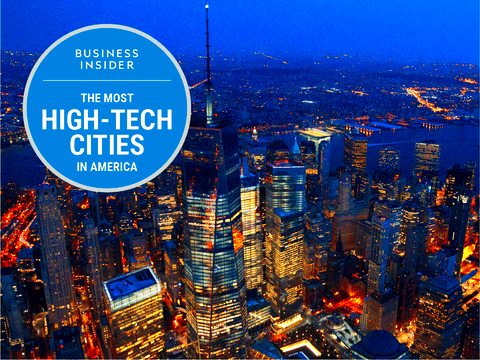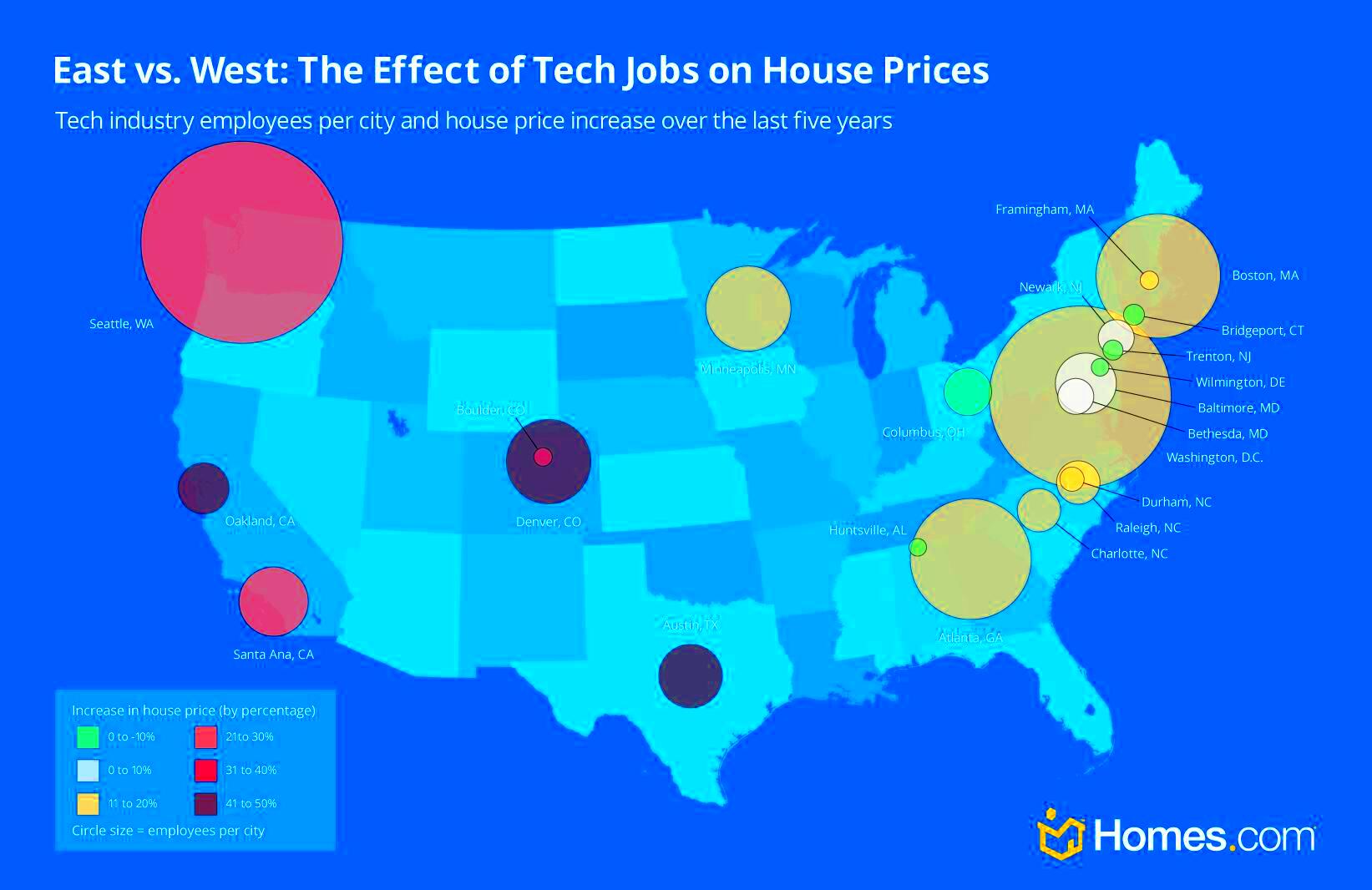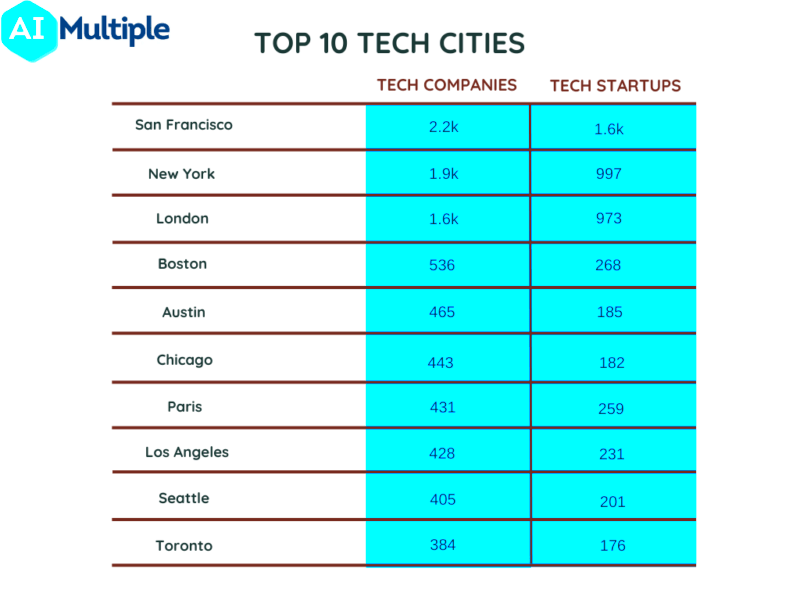Many cities in America are very advanced when it comes to
technology. They have attracted numerous people with talents, investments as well as companies. For instance, California’s Silicon Valley is among the most renowned tech hubs while Austin Texas offers a different dimension altogether. The reason behind the growing popularity of these cities will be useful for new entrants if understood well.
Factors That Make a City a Tech Hub

Several aspects result in a city being regarded as a tech hub. Here are some crucial components:
- Access to Talent: A strong pool of skilled professionals, often fostered by nearby universities and training programs, is essential.
- Investment Opportunities: Venture capitalists and angel investors are drawn to cities with a thriving startup culture.
- Networking: Tech events, conferences, and meetups help professionals connect and collaborate.
- Infrastructure: Reliable internet, transportation, and affordable office space support tech companies.
- Quality of Life: A vibrant cultural scene, recreational activities, and a reasonable cost of living attract talent.
When these things line up, a city can create an ecosystem that thrives and favors new ideas as well as development.
Top Tech Cities and Their Unique Features

Here is a collection of the greatest technical towns in America and their peculiarities:
| City | Unique Features |
|---|
| San Francisco, CA | Home to Silicon Valley, it offers access to leading tech companies, venture capital, and a diverse workforce. |
| Austin, TX | Known for its live music scene, Austin is also a growing hub for tech startups and major companies like Dell and Apple. |
| New York City, NY | The city’s diverse industries foster innovation in tech, finance, media, and healthcare. |
| Seattle, WA | Home to giants like Amazon and Microsoft, Seattle has a strong job market and a thriving tech community. |
| Boston, MA | With its top universities and research institutions, Boston excels in biotech and healthcare technology. |
Technological progress is not just pushed forward by these towns; but they are also bustling centers of culture and economic contributions.
The Role of Startups in Tech Ecosystems
Tech ecosystems thrive on emergence of startups, which are innovative engines that fuel advancement and transformation. These little but powerful companies usually overturn established markets through new concepts and technologies. This is why they occupy an important place:
- Innovation: Startups are often on the cutting edge, developing solutions that challenge the status quo.
- Job Creation: As they grow, startups create new jobs, contributing to the local economy and attracting talent.
- Investment Attraction: Successful startups draw the attention of investors, which can lead to further funding for new projects.
- Networking Opportunities: Startups often collaborate with larger companies, creating a dynamic ecosystem of partnerships.
- Cultural Influence: They can change the culture of a city, making it more innovative and entrepreneurial.
Consequently, vibrant start-up communities in several tech cities can catalyze cycles of innovation and growth that make them attractive places to reside and work.
Impact of Universities and Research Institutions
While both Universities and research institutions are fundamental in the promotion of technological innovation, they are more than just educational systems; they also offer financial assistance to researchers and resources that can augment technological ecosystems. The unique contributions that these institutions make include:
- Talent Development: Universities train the next generation of tech professionals, ensuring a steady flow of skilled workers into the industry.
- Research and Development: Cutting-edge research in labs often leads to breakthroughs that startups and established companies can commercialize.
- Collaboration: Many tech firms partner with universities for research projects, internships, and recruitment efforts.
- Funding Opportunities: Universities often have access to grants and funding that support tech innovation and entrepreneurship.
- Community Engagement: They contribute to local economies and cultural life, enhancing the quality of life in tech cities.
To sustain a vibrant
technology ecosystem that supports constant growth and innovation, it is vital that universities and research institutions participate in such systems.
Quality of Life in Tech Cities
Sporting opportunities boost the well-being of people in tech cities. So people compare and contrast their jobs based on the type of leisure activities available in various locations. There are two different locations in question presenting different perspectives as far as techies’ choice of place of residence is concerned.The first one is San Francisco Bay area and the second one is Austin Texas. Yet the question remains whether Austin can compete with San Francisco or not? This paper attempts to critically analyze this competition by considering various aspects surrounding quality of life including but not limited to cost of living, housing prices, climate and so on.There are diverse factors that contribute to quality of life such as:
- Cost of Living: Affordability of housing and daily expenses can greatly influence a person's decision to move to a tech city.
- Recreational Opportunities: Access to parks, gyms, and cultural venues enriches the living experience.
- Healthcare Services: Availability of good healthcare facilities is vital for a healthy population.
- Transportation: Efficient public transit and walkable neighborhoods make commuting easier and more pleasant.
- Cultural Diversity: A mix of cultures can create a vibrant community where people feel included and inspired.
To put it simply, excellent quality of life can be a game-changer for tech specialists as it helps them feel appreciated and stimulated in their jobs while at the same time having fun in their private lives.
Challenges Facing Tech Cities
Although innovation and opportunities abound in technological cities, they are faced with a myriad of problems that can hinder their growth and development. Anyone contemplating on pursuing a career or investing in this sector need to understand these challenges. These are some of the significant stumbling blocks:
- High Cost of Living: Many tech cities, like San Francisco and New York, have skyrocketing housing prices that can push out middle-class families and newcomers.
- Infrastructure Strain: As more people move to tech hubs, existing infrastructure can become overwhelmed, leading to traffic congestion and inadequate public services.
- Talent Shortage: Despite having strong educational institutions, the demand for tech talent often exceeds supply, making it difficult for companies to find qualified workers.
- Income Inequality: The rapid growth of tech industries can widen the gap between those working in tech and those in lower-paying jobs, leading to social unrest.
- Regulatory Challenges: As tech companies expand, they often face complex regulations that can hinder innovation and slow down growth.
It is crucial to tackle these challenges for the well-being of tech towns and to keep on drawing human resources as well as capital.
Frequently Asked Questions
Here are some frequently asked queries concerning technopoles along with their habitats:
What defines a tech city?
- A tech city typically has a high concentration of tech companies, startups, and skilled talent, often supported by educational institutions and investment opportunities.
Why are startups important?
- Startups drive innovation, create jobs, and attract investment, all of which contribute to a city's economic growth.
How can I move to a tech city?
- Consider your job prospects, housing costs, and lifestyle preferences. Research cities that align with your career goals and personal values.
What challenges do tech cities face?
- Common challenges include high living costs, infrastructure issues, talent shortages, and income inequality.
What is the future of tech cities?
- The future is likely to see increased collaboration, a focus on sustainability, and a push for inclusive growth in tech ecosystems.
Conclusion: The Future of Tech Cities in the USA
The sunset of tech cities USA appears so luminous, however it has its share of complications and possibilities. Cities should tweak themselves in accordance to the changing dynamics as
technology advances, laying emphasis upon sustainability, inclusivity and endurance. Hence some critical trends that one must consider are:
- Remote Work Trends: With remote work becoming more common, tech cities may need to rethink their strategies to attract talent who might choose to live elsewhere.
- Sustainable Practices: There’s a growing emphasis on eco-friendly practices in tech industries, influencing city planning and corporate responsibility.
- Collaboration Across Industries: As boundaries between sectors blur, interdisciplinary collaboration will become increasingly important, enriching the innovation landscape.
- Focus on Inclusion: Tech cities are likely to work harder to address income inequality and create inclusive environments for all residents.
With the embracing of such trends, it is very likely that technological urban areas will remain thriving cities of innovation and opportunities.
 Several aspects result in a city being regarded as a tech hub. Here are some crucial components:
Several aspects result in a city being regarded as a tech hub. Here are some crucial components: Here is a collection of the greatest technical towns in America and their peculiarities:
Here is a collection of the greatest technical towns in America and their peculiarities:
 admin
admin








